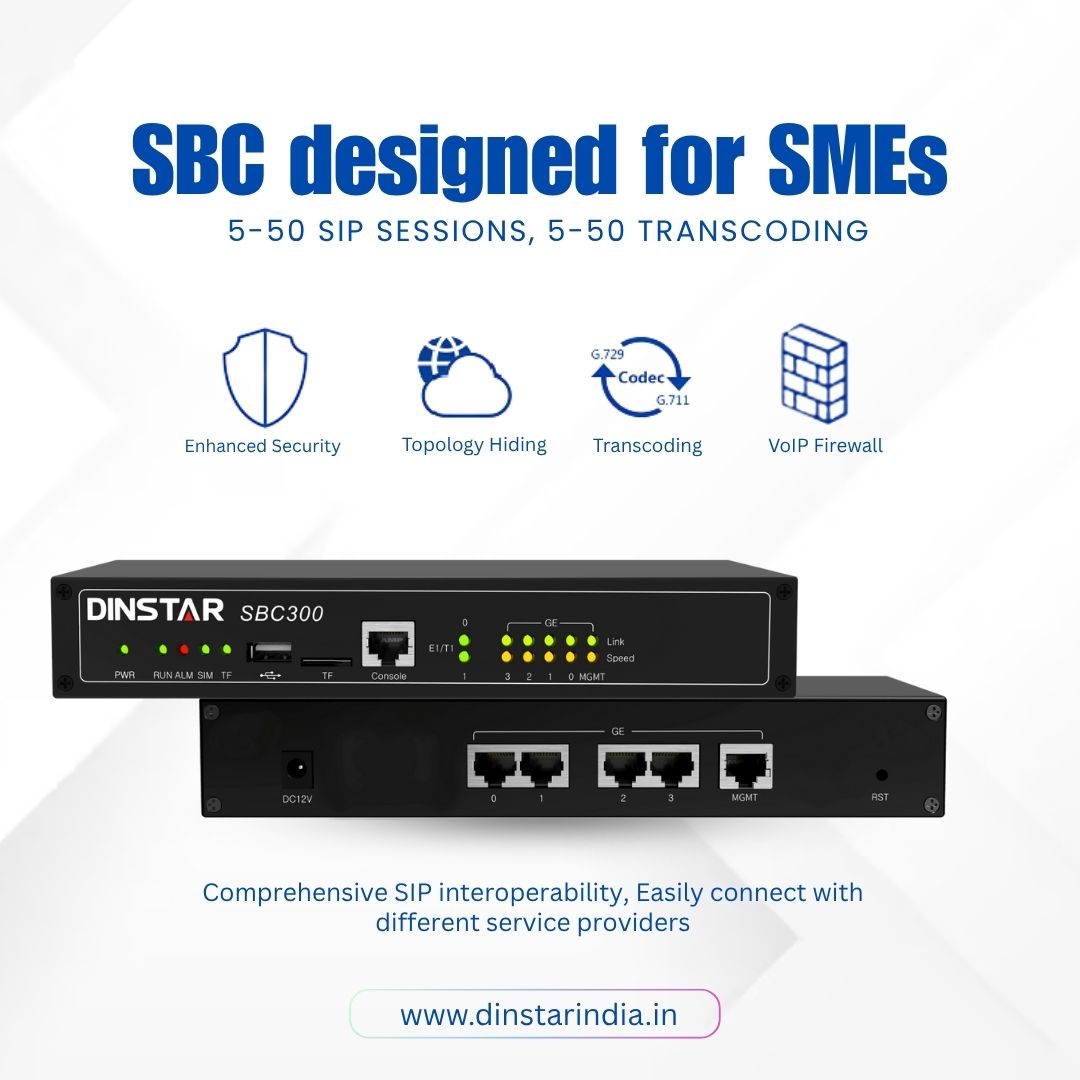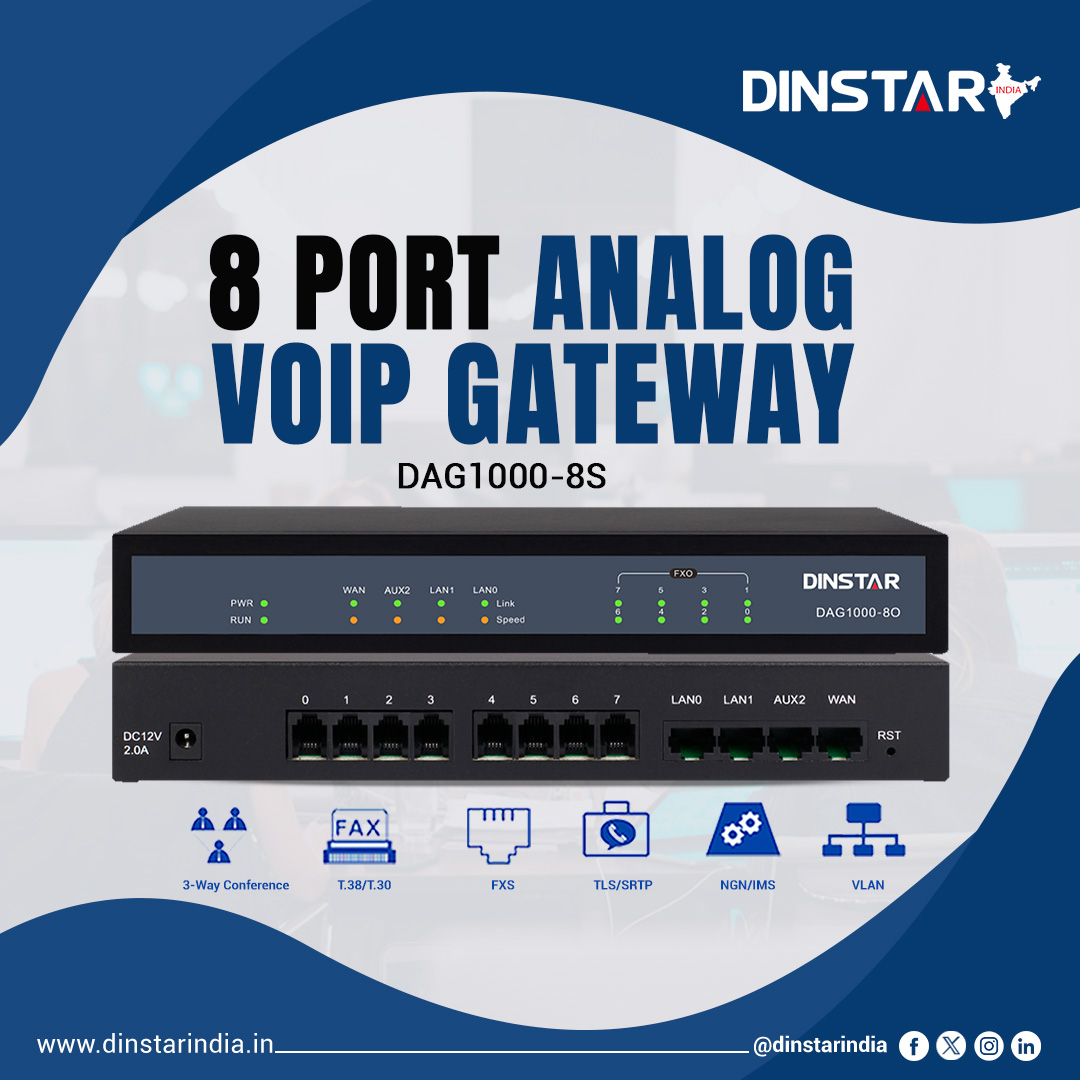Everything You Need to Know About 16 FXS Port Gateways

Strong 8k brings an ultra-HD IPTV experience to your living room and your pocket.
In the ever-evolving world of business communication, enterprises are continuously looking for efficient, cost-effective ways to connect legacy telephony infrastructure with modern VoIP networks. Among the many telecom innovations, the 16 FXS Port Gateway has emerged as a powerful solution for businesses that need to handle a large number of analog phone connections while benefiting from VoIP technologies.
This blog explores what a 16 FXS Port Gateway is, how it works, its benefits, applications, and how to choose the right one for your organization.
What is a 16 FXS Port Gateway?
A 16 FXS Port Gateway is a type of Analog VoIP Gateway equipped with 16 Foreign Exchange Subscriber (FXS) ports. Each FXS port is used to connect an analog device such as a traditional telephone, fax machine, or POS system. This gateway acts as a bridge between legacy analog devices and modern IP-based networks, enabling voice communication over the internet (VoIP).
With 16 ports, this device is suitable for medium to large enterprises, hotels, hospitals, call centers, and educational institutions where multiple analog lines are still in use.
How Does a 16 Port FXS Gateway Work?
The 16 Port FXS Gateway connects analog endpoints to a VoIP network. Here’s a simplified breakdown of how it works:
- Analog Device Connection: The analog devices (telephones or fax machines) are plugged into the FXS ports.
- Signal Conversion: The gateway converts analog signals into digital packets using codecs like G.711, G.729, etc.
- VoIP Transmission: These packets are then transmitted over the IP network to a PBX system, SIP server, or directly to another VoIP endpoint.
- Reverse Process: For incoming calls, the gateway converts digital signals back into analog to reach the correct analog device.
This conversion enables seamless integration of traditional telephony infrastructure with IP-based unified communication systems.
Key Features of a 16 Port FXS Gateway
When choosing a Multi-port VoIP Gateway, particularly a 16-port model, it’s essential to look for certain key features:
- High Voice Quality: Support for HD voice codecs, echo cancellation, jitter buffer, and QoS for consistent audio.
- SIP Protocol Support: Compatibility with standard SIP protocol to ensure seamless integration with most IP PBX systems.
- Flexible Dial Plan: Allows customized routing rules and number mapping for efficient call handling.
- Security Features: TLS, SRTP, and firewall features for secure VoIP communication.
- Web-Based Management: Easy configuration through a GUI-based interface with options for remote access and diagnostics.
- Failover Support: Some advanced gateways offer backup connections or dual Ethernet ports for redundancy.
- Compatibility: Interoperability with various IP PBX systems and softswitches for flexibility in deployment.
Benefits of Using a 16 FXS Port VoIP Gateway
Deploying a 16 FXS Port VoIP Gateway provides multiple advantages to organizations looking to modernize communication infrastructure:
1. Preserve Investment in Analog Devices
Many businesses still rely on analog phones, fax machines, and intercom systems. A 16 FXS gateway allows them to integrate these devices into a modern VoIP system without replacing the existing hardware.
2. Cost Efficiency
VoIP calls are significantly cheaper than traditional landline calls. By routing calls over IP networks, businesses can reduce operational costs, especially for long-distance and international calls.
3. Scalability
With 16 ports available, these gateways support growth without the need for multiple smaller devices, making them ideal for expanding enterprises.
4. Centralized Communication
The gateway can route all analog calls through a centralized IP PBX system, enabling features like call recording, voicemail, IVR, and call forwarding.
5. Improved Mobility
When integrated with a cloud or on-premises IP PBX, employees can take advantage of softphones and mobile VoIP apps while retaining analog extensions where needed.
6. Reliability
Enterprise-grade 16-port gateways are built for high availability with features like watchdog timers, hot-swappable ports, and power redundancy.
Applications of 16 FXS Port Gateways
- Hospitality
Hotels often use analog phones in guest rooms. A 16 FXS Port Gateway connects all room phones to a central VoIP system, allowing efficient internal and external communication.
- Healthcare
Hospitals use analog lines for emergency communication and intercom systems. A VoIP gateway ensures they stay connected while reducing telecom costs.
- Education
Campuses with legacy phones in classrooms or dorms can centralize their voice network using a 16-port gateway.
- Call Centers
Legacy call stations or analog handsets can be integrated into IP-based call centers with the help of FXS gateways.
- Enterprise Offices
Offices with analog desk phones, fax machines, or door phones can move to IP telephony without replacing all devices at once.
Choosing the Right 16 FXS Port Gateway
When selecting a 16 Port FXS Gateway, consider the following factors:
- Network Compatibility
Ensure the gateway supports the SIP version used by your IP PBX or hosted VoIP provider.
- Voice Quality
Look for features like echo cancellation (G.168), adaptive jitter buffering, and silence suppression to guarantee high-quality communication.
- Management Tools
A user-friendly web interface, SNMP support, and remote diagnostics are crucial for simplified maintenance and troubleshooting.
- Security
In VoIP environments, security is paramount. Ensure your gateway includes encryption options like TLS and SRTP, as well as SIP authentication.
- Failover Mechanism
If business continuity is critical, choose a gateway that supports Ethernet failover or dual LAN ports for automatic switch-over in case of a failure.
- Warranty and Support
A reliable warranty, along with responsive technical support, is essential for long-term usability and peace of mind.
Dinstar: A Trusted Name in Analog VoIP Gateways
Dinstar is known for offering robust and feature-rich Analog VoIP Gateways, including high-performance 16 Port FXS models. These gateways are designed to deliver:
- Carrier-grade voice quality
- Seamless integration with SIP platforms
- Enhanced security protocols
- Centralized web management
- Easy installation and deployment
Whether you're an enterprise, system integrator, or VoIP service provider, Dinstar’s 16 FXS solutions can support your communication needs with reliability and scalability.
Conclusion
As businesses continue to evolve their communication systems, the demand for hybrid solutions that combine legacy devices with modern VoIP capabilities is growing. A 16 FXS Port Gateway offers an effective bridge between analog telephony and IP networks, allowing businesses to modernize without the hefty cost of replacing existing infrastructure.
Note: IndiBlogHub features both user-submitted and editorial content. We do not verify third-party contributions. Read our Disclaimer and Privacy Policyfor details.







